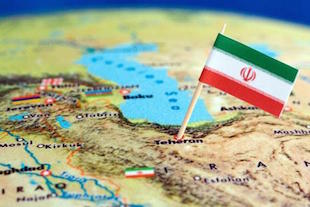By Mahmoud Reza Golshanpazhooh*
TEHRAN – Finally, after about two years of negotiations and talks, the nuclear marathon between Iran and six big powers of the world reached its finishing point with the announcement of the Implementation Day of the Joint Comprehensive Plan of Action (JCPOA), and official announcement of the lifting of the European Union’s sanctions along with an important part of U.S. sanctions against Iran.
Of course, any smart analyst and politician knows that this good ending is also a beginning for foreign obstructionist efforts, domestic conflicts, doubts on the part of trade partners about the volume and extent to which economic relations should be developed as well as magnification of any weakness by governments and media that were opposed to this process from the very beginning.
Therefore, there is no doubt that maintaining the achievements of the nuclear agreement will be much more difficult than the process taken to reach the agreement.
One point, however, cannot be denied: what Iran has earned through JCPOA is much more valuable than mere removal of sanctions and recognition of its right to have the full nuclear fuel cycle.
This major achievement is conversion of such securitized and fabricated concepts as “Iran disturbs international peace and security,” and “Iran is an isolated country in terms of political and economic and even international cultural communications” to such new concepts as “Iran is a powerful and stable regional actor,” “self-confident in diplomatic arenas,” and “firm in its principles and logical viewpoints.”
During all the years that Iran’s nuclear issue was considered under Chapter VII of the United Nations Charter and various resolutions were adopted against Iran by the UN Security Council, most members of the international community either tried to add to daily claims about Iran’s detrimental role to international peace and security, or remained silent and preferred to witness this process from afar. During past years, the negative atmosphere against Iran was so heavy that few countries were ready to pay the cost of taking sides with Iran.
However, a combination of the patience of the tolerant Iranian citizens and the self-confidence and self-esteem of the highest ranking officials, along with simultaneous maintenance of the country’s military might and diplomatic finesse, managed to create an atmosphere in which Iran not only managed to defuse the negative atmosphere against it in international environment, but prove correctness of its viewpoint and discourse about many regional developments without any special effort.
Now, there are few people, who do not know where is the origin of a large part of instability that stems from terrorism in the Middle East and the world; which countries’ support has made continued presence and behaviour of Daesh possible; what will be the fate of the futile wars in Yemen and Syria; or what countries can be forced to cut their relations with other countries through financial incentive or threat.
All these facts have been proven without any major effort or propaganda campaign on the part of Iran, and this is a great achievement for the Iranian diplomacy.
On the other hand, the sudden plan to swap a number of Iranian and American prisoners between the two countries, and the positive outcomes that it will have, at least, for the human rights atmosphere that surrounds Iran at international level, are sign of a well-thought rationality in both diplomatic apparatuses of Iran and the United States.
This development, along with peaceful resolution of the case of American Marines nabbed by Iranian forces, reaffirmed further strengthening of the roots of Iran’s soft power, both in the region and at international level.
At any rate, if removal of sanctions had taken place two years ago, perhaps it would not have changed the general atmosphere in Iran’s favour to such an extent. Today, and inside the country, both people and officials are more realistic about the extent and scope of the impact that removal of sanctions will have on their everyday lives. They know that in view of very low oil prices and possible obstructionist efforts against the implementation of JCPOA, they should not expect an economic miracle overnight.
Meanwhile, during the past year, experts have laid much more emphasis on the need to focus on improving economic structures and eliminating weaknesses and vulnerabilities of domestic economy than improvement of international conditions for the Iranian economy following the implementation of JCPOA.
At the same time, the public opinion in Iran, on average, is more self-confident now than previous years, and at present, people do not consider diplomatic might of their country less than other big countries in the world. Also, they are very happy that a large part of their approach and viewpoint about the most effective way of fighting Daesh terrorism in Syria and Iraq has been taken onboard by international institutions and influential countries.
Goethe has a beautiful remark in the tragedy of Faust where he says, Lucifer thinks evil, but creates good. This sentence is a good description for the current situation of Iran and those countries that tried for years to securitize the case of Iran and promote Iranophobia project in order to hide the reality and grandeur of the greatest, most stable, most united and most honourable actor in the Middle East region, which at the same time, pioneers the most merciful interpretation of Islam. As the Persian proverb goes: “the truth will out”.
*Mahmoud Reza Golshanpazhooh is Executive Editor of Iran Review. This article originally appeared in Iran Review on January 18 with the headline ‘A New Era For Iran’s Soft Power’. It is being reproduced by arrangement with the Iran Review. [IDN-InDepthNews – 18 January 2016]
Image: Iran Review

